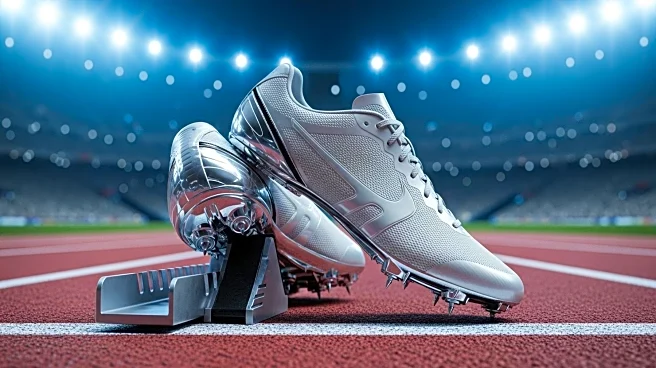What's Happening?
A recent scientific study conducted by Wouter Hoogkamer and his team at the University of Massachusetts suggests that Usain Bolt could have run the 100m in 9.42 seconds if he had used super spikes. This time is 0.16 seconds faster than his current world record of 9.58 seconds set in 2009. The study, funded by Puma, analyzed data from 15 athletes and used complex equations to predict Bolt's potential performance with advanced footwear technology. Bolt, who is in Tokyo for the World Athletics Championships, expressed agreement with the findings, noting that other athletes have improved their times with similar technology. Despite not having tried the new spikes himself, Bolt acknowledged their effectiveness.
Why It's Important?
The study highlights the significant impact of technological advancements in sports equipment on athletic performance. If Bolt's predicted time is accurate, it underscores the potential for records to be broken with the aid of improved gear. This could lead to a reevaluation of historical performances and the role of technology in sports. For athletes and manufacturers, it presents opportunities to push the boundaries of human capabilities and innovate further. However, it also raises questions about fairness and the integrity of competition, as access to such technology may vary among athletes.
What's Next?
As the World Athletics Championships continue, Bolt predicts that Jamaican athletes Kishane Thompson and Oblique Seville will outperform reigning Olympic champion Noah Lyles in the men's 100m final. The study's findings may influence future discussions on the regulation of sports equipment and its impact on competition. Manufacturers might invest more in research and development to create even more advanced gear, potentially leading to new records and shifts in competitive dynamics.
Beyond the Headlines
The implications of this study extend beyond athletics, touching on ethical considerations in sports. The use of advanced technology in equipment could lead to debates about the essence of athletic achievement and whether it should be attributed to human skill or technological enhancement. This could influence policies on equipment standards and the definition of fair play in sports.









